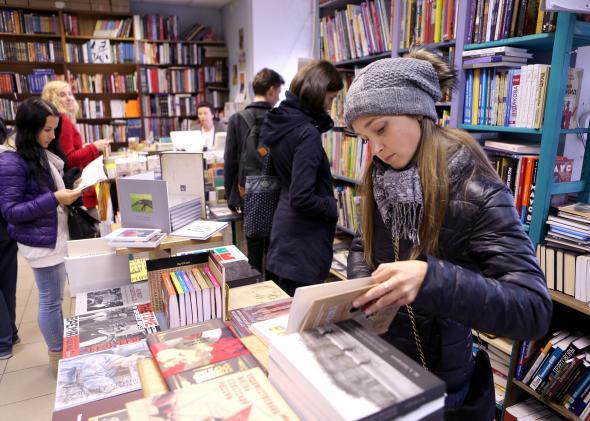Anxious to comply with a law against Nazi propaganda, bookstores in Moscow having been pulling copies of the comic book Maus. Art Spiegelman’s Pulitzer Prize-winning book, which uses cats and mice to depict the horrors of the Holocaust, is not exactly pro-Nazi, but it does feature a swastika on its cover, and the store owners pulling it say they didn’t want to run afoul of a government directive mandating the removal of fascist symbols from the city ahead of the May 9 Victory Day celebrations, which commemorate the defeat of Nazi Germany.
Before we scoff too much, it’s worth remembering that Maus has been challenged by skittish school libraries in the United States as well, but the case does illustrate something about how censorship works in contemporary Russia.
The booksellers in this case made a pre-emptive decision to remove the books rather than wait for Vladimir Putin’s government inspectors to find them and potentially make trouble. We may associate censorship in authoritarian countries with jackbooted police marching into libraries to confiscate banned literature, but more often, in Russia at least, it’s self-censoring for fear of violating intentionally vague laws. As the Times wrote recently describing the reaction of Moscow theaters to a new law banning obscenity in public performances, “Cultural figures in Russia today describe a climate of confusion and anxiety.” One publisher was quoted as saying that in Soviet times, “at least we knew the rules.”
This dynamic was also behind independent TV station Dozhd’s decision to slap an adult content warning on Hillary Clinton’s campaign announcement because it featured a brief shot of a gay couple holding hands. Though they received no instructions from the government to include the warning, the station managers were nervous it might violate Russia’s ban on “gay propaganda.” As LGBT activists told me in Moscow last fall, the most pernicious thing about that ban is that it’s so vaguely worded that no one is really sure what “gay propaganda” is, which means that out of an abundance of caution, venues are reluctant to host their events and media outlets are reluctant to cover them. One Russian region even asked the Kremlin to confirm that its rainbow-patterned flag didn’t violate the ban.
Putin barely has to enforce laws to get jittery citizens to purge Russia of potentially offending swastikas and rainbows. Neat trick.
